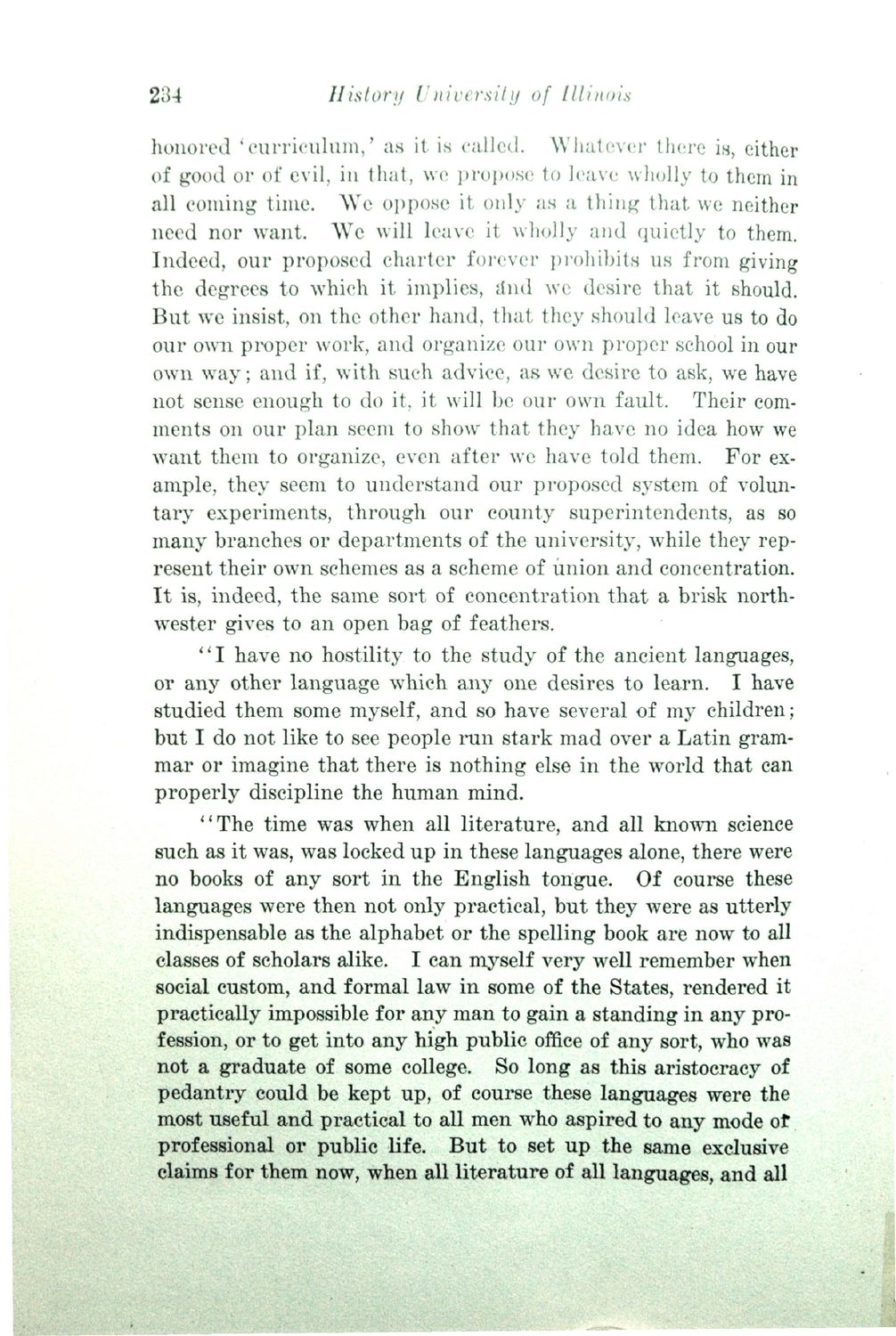| |
| |
Caption: Book - History of the University (Powell)
This is a reduced-resolution page image for fast online browsing.

EXTRACTED TEXT FROM PAGE:
234 History University of Illinois honored i curriculum, * as it is called. Whatever there is, either of good or of evil, in that, we propose to leave wholly to them in all coming time. We oppose it only as a thing that we neither need nor want We will leave it wholly and quietly to them. Indeed, our proposed charter forever prohibits us from giving the degrees to which it implies, dnd we desire that it should. But we insist, on the other hand, that they should leave us to do our own proper work, and organize our own proper school in our own way; and if, with such advice, as we desire to ask, we have not sense enough to do it, it will be our own fault. Their comments on our plan seem to show that they have no idea how we want them to organize, even after we have told them. For example, they seem to understand our proposed system of voluntary experiments, through our county superintendents, as so many branches or departments of the university, while they represent their own schemes as a scheme of union and concentration. I t is, indeed, the same sort of concentration that a brisk northwester gives to an open bag of feathers. " I have no hostility to the study of the ancient languages, or any other language which any one desires to learn. I have studied them some myself, and so have several of my children; but I do not like to see people run stark mad over a Latin grammar or imagine that there is nothing else in the world that can properly discipline the human mind. "The time was when all literature, and all known science such as it was, was locked up in these languages alone, there were no books of any sort in the English tongue. Of course these languages were then not only practical, but they were as utterly indispensable as the alphabet or the spelling book are now to all classes of scholars alike. I can myself very well remember when social custom, and formal law in some of the States, rendered it practically impossible for any man to gain a standing in any profession, or to get into any high public office of any sort, who was not a graduate of some college. So long as this aristocracy of pedantry could be kept up, of course these languages were the most useful and practical to all men who aspired to any mode ot professional or public life. But to set up the same exclusive claims for them now, when all literature of all languages, and all
| |